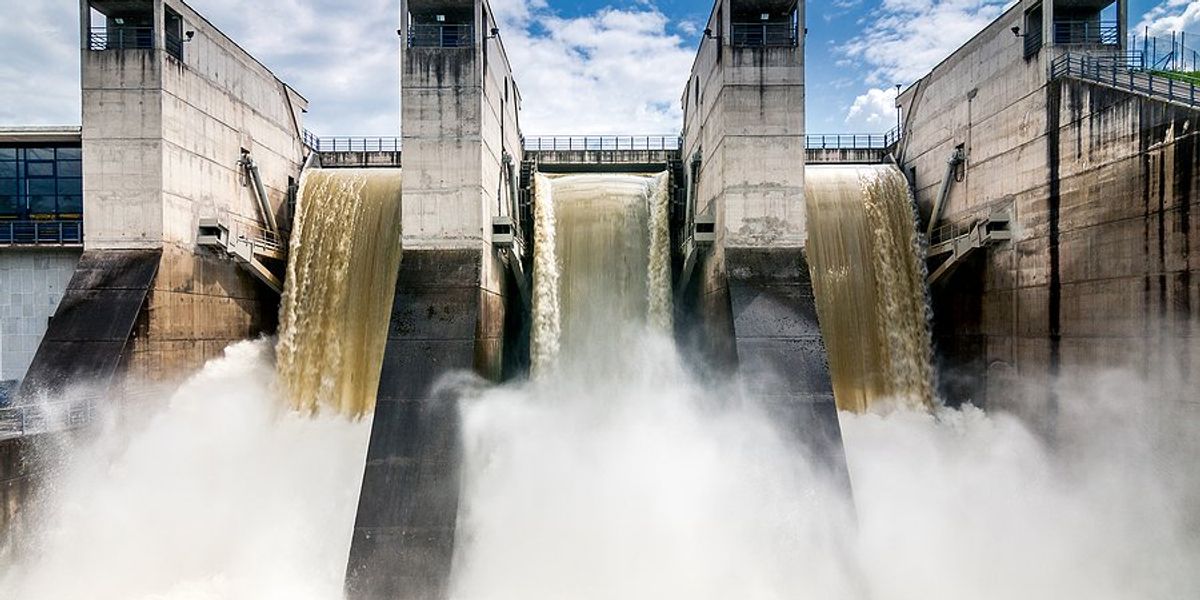public lands
Forest policy debates could shape, but not shift, national forest management
As November’s election approaches, the battle over how we manage national forests heats up, but the day-to-day work in these forests is likely to stay on course.
In short:
- The Forest Service’s work, including logging and fire management, is expected to continue regardless of election outcomes.
- Major funding from the Inflation Reduction Act and the bipartisan infrastructure law will keep driving forest management projects, though future funding could be uncertain.
- The biggest policy divide may focus on protecting old-growth forests, with Democrats likely pushing for more conservation and Republicans favoring resource management.
Key quote:
“There isn’t much controversy over the need to do more to improve the health of the national forests.”
— Bill Imbergamo, executive director of the Federal Forest Resource Coalition
Why this matters:
No matter the outcome of this fall's elections, the U.S. Forest Service's operations will roll on, driven by its army of career employees, not political appointees. Emphasis on a fire-first approach exemplifies the challenge of balancing immediate threats with long-term forest health. Read more: The push for standing forest protections in US climate policy.
Biden’s oil policy leaves a lasting impact on public lands
President Biden significantly reduced oil lease sales on federal lands, causing long-term effects on drilling despite not stopping it entirely.
In short:
- Biden cut new oil leases on federal lands by 95%, reducing future development.
- New rules made drilling more costly, raising bond requirements to $150,000 per lease.
- Despite the cutbacks, nearly 12,000 onshore wells were approved during Biden's tenure.
Key quote:
“The political campaign rhetoric met reality."
— Shannon Anderson, attorney with the Powder River Basin Resource Council.
Why this matters:
Biden's policies aim to decrease reliance on fossil fuels while balancing economic pressures. These changes will influence U.S. energy and environmental strategies for years to come.
Congress moves to enhance mining rights on federal land
A bipartisan bill expanding legal rights for mining companies on federal lands has passed the House and is progressing in the Senate.
Esther Frances, Megija Medne, and Phillip Powell report for Inside Climate News.
In short:
- The Mining Regulatory Clarity Act passed the House with bipartisan support and now awaits Senate approval.
- The bill aims to overturn a 2022 court decision that restricted mining waste dumping on federal lands without a valid mineral claim.
- Environmental and Indigenous groups argue the legislation threatens sacred lands and critical environmental protections.
Key quote:
“It makes no sense on its face, that a mining company can dump toxic waste on areas where they have no claims on public land.”
— Laiken Jordahl, Southwest conservation advocate for the Center for Biological Diversity
Why this matters:
The proposed legislation could significantly weaken environmental safeguards and legal precedents protecting public and Indigenous lands from unregulated mining activities. Federal lands are often home to unique ecosystems and wildlife, and increased mining activities could lead to habitat destruction, water contamination, and increased carbon emissions.
Indigenous tribes advocate for co-management of sacred lands
Indigenous tribes in northern California seek greater decision-making power over sacred lands recently protected by a national monument expansion.
In short:
- The Yocha Dehe Wintun Nation and allies have successfully lobbied to include Molok Luyuk in the Berryessa Snow Mountain National Monument, protecting it from wind farm development.
- Tribes are negotiating a co-stewardship agreement with federal agencies, aiming for stronger management roles over Molok Luyuk, though full co-management requires congressional approval.
- True co-management, as seen in Bears Ears National Monument, grants tribes significant decision-making power, integrating traditional knowledge into federal land management.
Key quote:
“Co-management means decision-making authority. Co-stewardship means one entity still has the decision-making authority.”
— Melissa Hovey, Berryessa Snow Mountain National Monument manager.
Why this matters:
Empowering Indigenous tribes in land management enhances conservation efforts and acknowledges their traditional ecological knowledge while honoring sacred sites. Read more: Giving Bears Ears and Grand Staircase-Escalante the protection they deserve.
Preserving the Owyhee Canyonlands: the push for monument status
Local advocates are urging President Biden to create new national monuments in order to meet his administration's conservation goals, but the push has encountered resistance from some locals in the region.
In short:
- The Owyhee Canyonlands are one of the last intact sagebrush habitats in the Western U.S., spanning around 7 million acres across three states.
- Threats to the region include invasive species, mining, and suburban development, leading advocates to push for national monument designation to protect the area.
- A coalition is working to urge President Biden to use the Antiquities Act to protect 1 million acres of the canyonlands, but legislation faces political hurdles.
Key quote:
“National monuments really are the most effective tool that we have as a country to protect biodiversity and ward off this extinction crisis.”
— Kate Groetzinger, communications manager for the Center for Western Priorities
Why this matters:
Conserving the Owyhee Canyonlands is crucial for maintaining biodiversity and protecting the region's fragile ecosystem, which is threatened by development and climate change. Read more: Giving Bears Ears and Grand Staircase-Escalante the protection they deserve.
New rule prioritizes conservation on US public lands
A new rule introduced by the Biden administration aims to balance conservation with economic activities on America's public lands, enhancing protections and sustainable use.
In short:
- The rule impacts 245 million acres, promoting ecological restoration and compensating for environmental damage.
- Conservation will now be considered as significant as grazing, mining, and other land uses.
- The measure responds to the increasing environmental pressures such as climate-induced wildfires and droughts.
Key quote:
"As stewards of America's public lands, the Interior Department takes seriously our role in helping bolster landscape resilience in the face of worsening climate impacts."
— Deb Haaland, U.S. Secretary of the Interior.
Why this matters:
This policy represents a strategic shift in how public lands are managed, intertwining ecological health with national economic and security interests, and addressing the urgent challenges posed by climate change. Read more from EHN's newsroom: Public lands are not neutral. We must grapple with their racist roots.



















